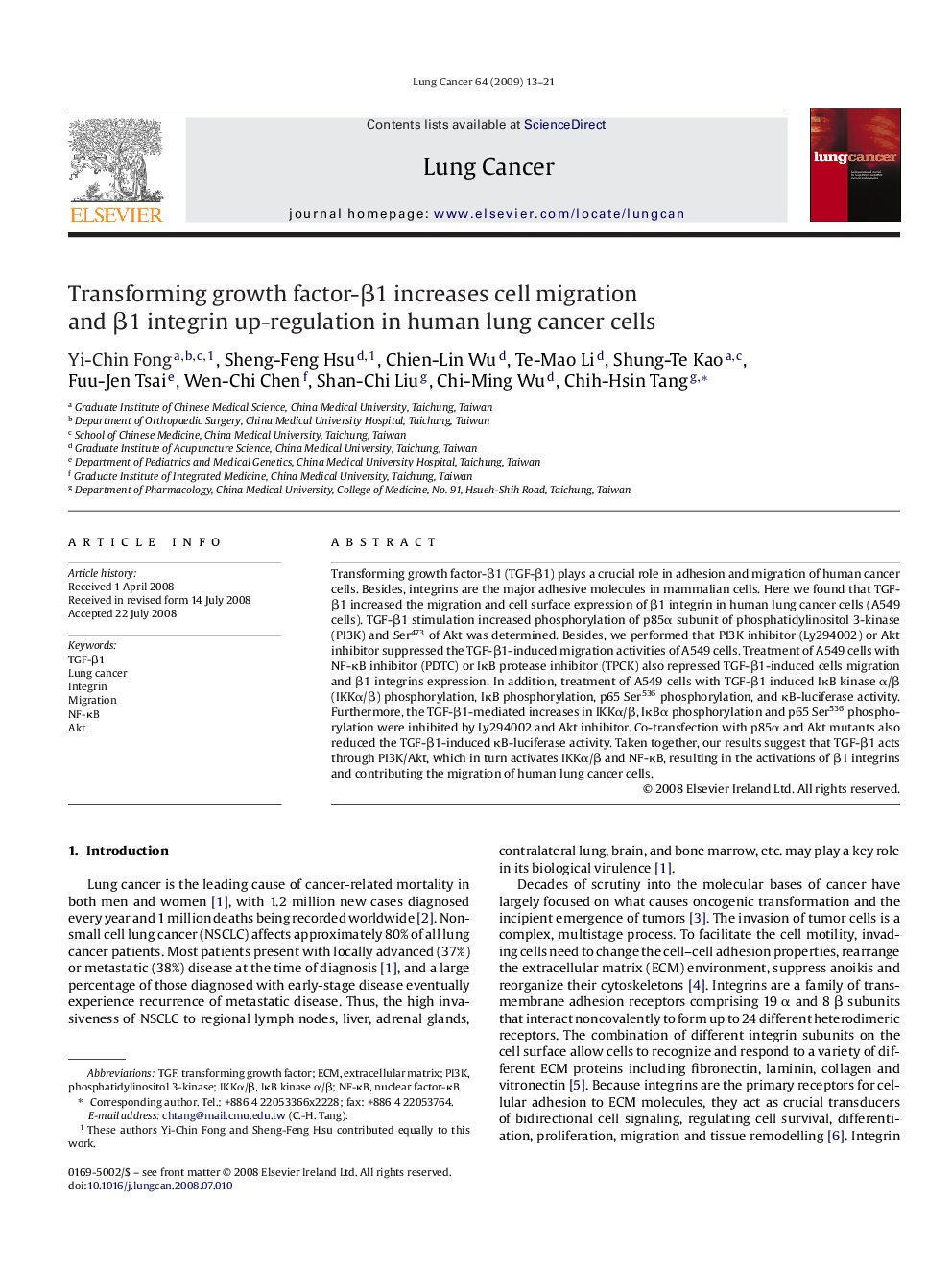| Article ID | Journal | Published Year | Pages | File Type |
|---|---|---|---|---|
| 2143363 | Lung Cancer | 2009 | 9 Pages |
Transforming growth factor-β1 (TGF-β1) plays a crucial role in adhesion and migration of human cancer cells. Besides, integrins are the major adhesive molecules in mammalian cells. Here we found that TGF-β1 increased the migration and cell surface expression of β1 integrin in human lung cancer cells (A549 cells). TGF-β1 stimulation increased phosphorylation of p85α subunit of phosphatidylinositol 3-kinase (PI3K) and Ser473 of Akt was determined. Besides, we performed that PI3K inhibitor (Ly294002) or Akt inhibitor suppressed the TGF-β1-induced migration activities of A549 cells. Treatment of A549 cells with NF-κB inhibitor (PDTC) or IκB protease inhibitor (TPCK) also repressed TGF-β1-induced cells migration and β1 integrins expression. In addition, treatment of A549 cells with TGF-β1 induced IκB kinase α/β (IKKα/β) phosphorylation, IκB phosphorylation, p65 Ser536 phosphorylation, and κB-luciferase activity. Furthermore, the TGF-β1-mediated increases in IKKα/β, IκBα phosphorylation and p65 Ser536 phosphorylation were inhibited by Ly294002 and Akt inhibitor. Co-transfection with p85α and Akt mutants also reduced the TGF-β1-induced κB-luciferase activity. Taken together, our results suggest that TGF-β1 acts through PI3K/Akt, which in turn activates IKKα/β and NF-κB, resulting in the activations of β1 integrins and contributing the migration of human lung cancer cells.
